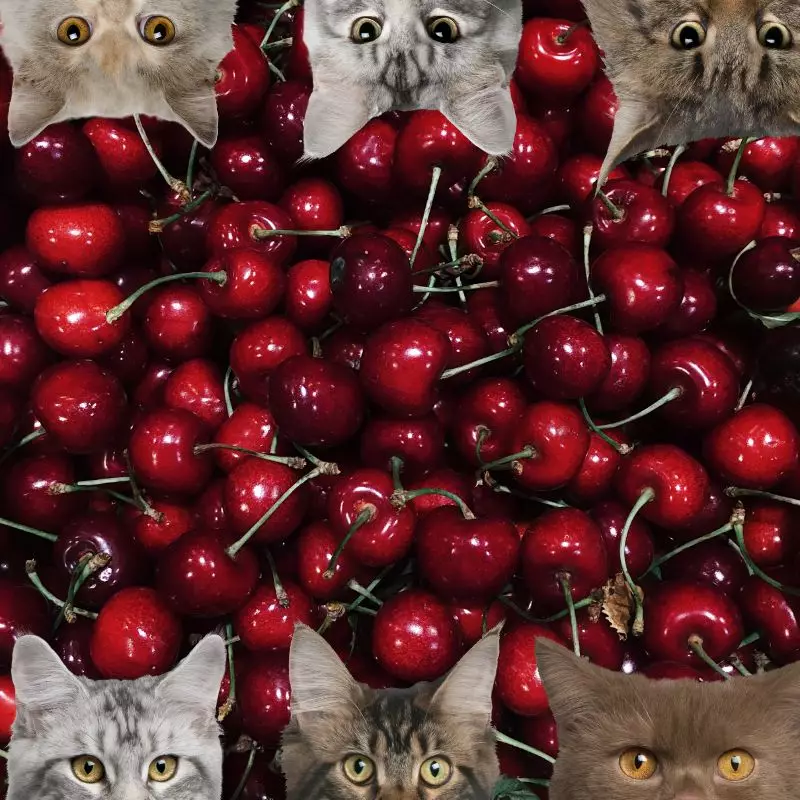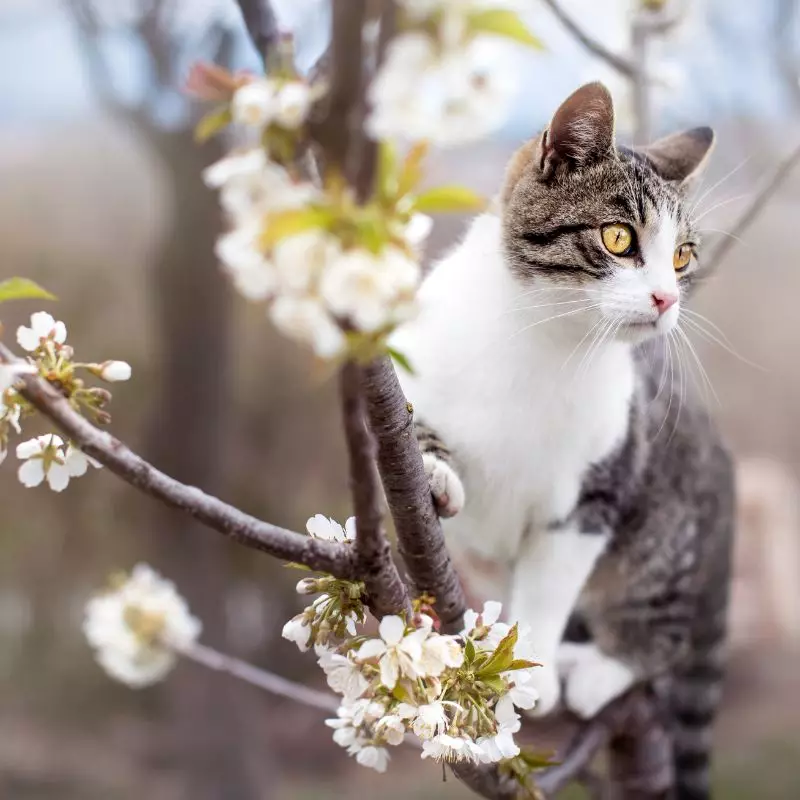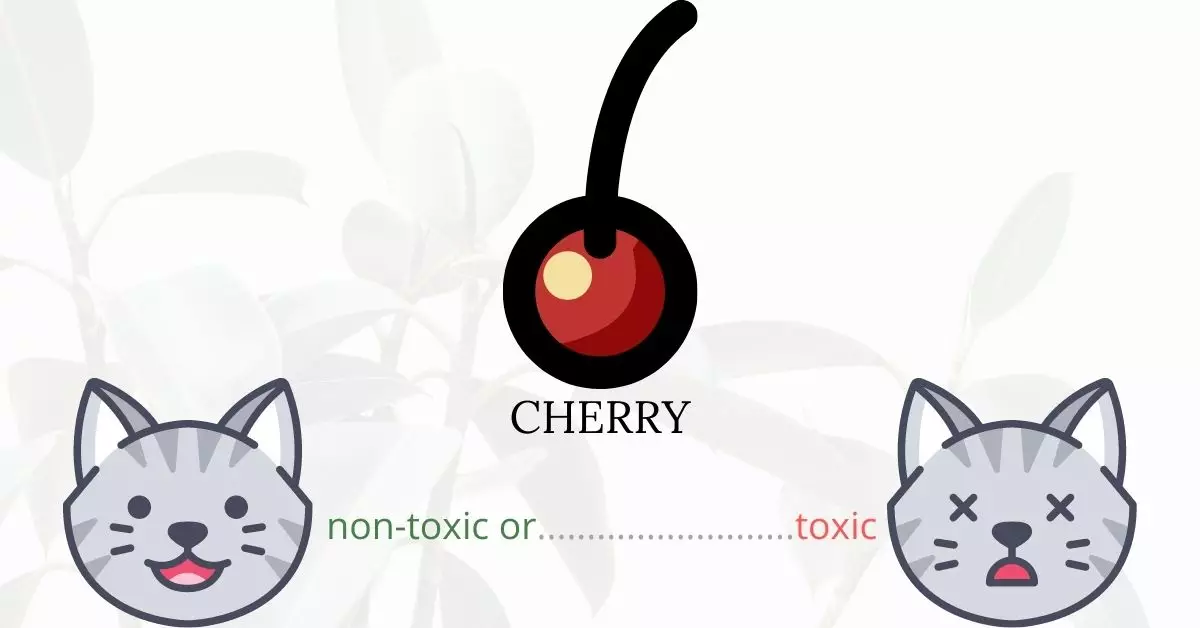Yes, cherries can be toxic to cats. It is crucial for cat owners to be aware that while the ripe pulp around the seeds of cherries is generally safe, all other parts of the cherry plant contain cyanogenic glycosides. These compounds release cyanide when broken down, which can inhibit cytochrome oxidase, an enzyme crucial for cellular oxygen transport. As a result, if a cat consumes parts of the cherry plant, symptoms may manifest as difficulty in breathing, bright red gums, dilated pupils, and shock. In severe cases, this can lead to death.
This article was crafted in close collaboration with a team of experienced DVMs (doctors of veterinary medicine). Their expertise, combined with thorough research from high-authority websites like ASPCA and PetMD, ensures that we provide accurate and up-to-date information on the potential risks associated with various plants, particularly cherries in this context, and their effects on cats.
Clinical Signs of Cherry Poisoning in Cats

When cats come into contact with, inhale, or consume parts of the cherry plant, they can exhibit various clinical signs. The cherry plant contains cyanogenic glycosides, which release cyanide when metabolized. The cyanide affects the body’s ability to effectively transport and use oxygen at a cellular level, leading to the following symptoms:
- Bright Red Mucous Membranes: This is indicative of the body’s attempt to compensate for low oxygen levels. The red coloration results from increased blood flow in an effort to provide more oxygen to vital tissues.
- Low Oxygen Levels (Hypoxia): The cyanide inhibits cytochrome oxidase, which is crucial for cellular oxygen transport. As a result, cells cannot take in enough oxygen, leading to hypoxia.
- Breathing Problems: As the body detects low oxygen levels, the cat might breathe more rapidly or have labored breathing in an attempt to intake more oxygen.
- Dilated Pupils: This can result from the body’s stress response to the toxin, as well as lowered oxygen levels affecting the brain’s function.
- Shock: A severe and life-threatening drop in blood flow throughout the body can occur due to the combined effects of decreased oxygen delivery to tissues and the body’s response to the toxins.
If you suspect that your cat has come into contact with or consumed any part of a cherry plant, it is imperative to seek veterinary attention immediately.
First Aid and Treatment of Cherry Poisoning in Cats

Oxygen supplementation is essential as cherry poisoning prevents the uptake of oxygen to the cells. Then, the vet will flush out the cyanide from the cat’s body, and may also give methylene blue intravenously. Methylene blue works via ferric iron in hemoglobin being converted to ferrous iron. As a result, this therapeutic drug changes methemoglobin cells that don’t carry oxygen into hemoglobin cells that can transport oxygen again. Methylene blue and mineral oil can be used together by veterinarians. Mineral oil can aid in quicker defecation and the elimination of harmful substances from the feline’s gastrointestinal tract when used as a cathartic. As long as the symptoms persist, the veterinarian’s treatment sequence may be repeated.
Recovery from Cherry Poisoning in Cats

Your cat’s recovery will be faster if you get medical help as soon as possible. If your cat’s symptoms were treated and handled promptly, he or she would quickly return to his or her normal routines. If you have any queries, especially about providing support care following the treatment, contact your veterinarian.
Prevention of Cherry Poisoning in Cats
Avoid and remove growing cherry plants in your surroundings. Keep your cat safe and comfortable indoors. Build fences, install safety nets, and utilize playpens or cat houses to prevent your cat from wandering away especially if you are not home.
If you love plants but have cats at home, check out these lists:





